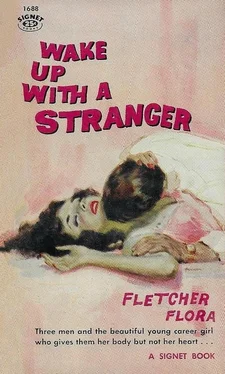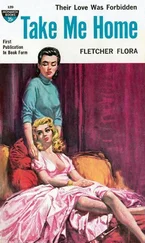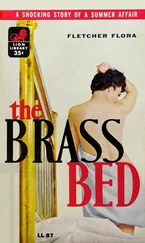“What is it?”
“It has to do with the local shop in which you bought two original gowns. The shop owned by Aaron Burns, who died recently. You’ll remember that I was there with you when you bought the second gown.”
“Yes, I remember.”
“Do you also remember the young lady who designed the gowns?”
“Yes, I remember. Donna Buchanan. She’s very talented.”
“Do you intend to continue buying gowns from her?”
“Yes, I do. I’m convinced she will build quite a reputation. Why are you so interested?”
“As I said, it’s a matter of business. She wants to borrow money to buy the shop, so she can continue to use it as an outlet for her work.”
“Then loan it to her. She will certainly be successful.”
“As a designer, I have no doubt. But there is more than that to running a successful business.”
“Well, that’s something I know nothing about.”
“It will take at least two hundred thousand dollars. That’s quite a lot of money to invest with no more security than the shop itself.”
“Surely you don’t expect me to advise you regarding your investments.”
“Of course not. All I wanted, really, was your opinion of Miss Buchanan’s ability.”
“I’ve told you that. She is certain, in my judgment, to go a long way.”
“Isn’t it rather unusual for a designer to start in this way? Don’t they usually get a position with a large outfit, or something of the sort?”
“I suppose they do, usually. I suspect that Miss Buchanan is an unusual person.”
“Yes. I suspect that myself.” He drained his glass and stood up. “Well,” he said, “I think I’ll get started for the country.”
“All right. I hope you have a pleasant weekend.” He went over to her and touched his lips to her cheek and went out.
She undressed and lay down on the bed and began to think about the harpist, another talented young woman, whose expenses she was paying at a local conservatory.
Enos Simon walked slowly beneath the pines of Pine Hill. It was four o’clock, and he had survived another day of classes, which was something to be thankful for, but how to survive the day after, or the days after and after and after, was something he could not imagine or even bear to think of. Fortunately, however, it was not necessary to think of it, at least not at the moment, because this was Friday and there were no more classes until Monday. This was something else for which he could, he supposed, be thankful. He walked slowly because he was by no means eager to reach his destination and because he was much more tired than he should have been. But he soon reached the house in which he lived, which was only a short distance from the school, right at the foot of the hill, and inside in his room he stood looking out the window and up the hill in the direction from which he had just come.
He hated the hill and the pines. He would have hated them anyhow, for reasons he would never understand, but he especially hated them because they looked like a hill and pines he had known in another place in another time. The place was not far away, nor the time so very long ago, and from his window there he had looked down the hill instead of up; but otherwise the two views were almost identical. Sometimes he had the feeling, looking out the window and up the hill, that the same doctor who had gone to talk with him there would return to talk with him here. He had not hated the doctor, who tried to be kind and helpful, but neither had he wanted to talk with him, always feeling relieved when he went away. One of the reasons he had not wanted to talk was that he would say things about himself that he afterward regretted saying. When he felt this regret he would go back over the conversation in his mind, trying to recall it precisely — and this was disturbing. Quite a long while after he had left the place — especially at times when he was particularly depressed — he would find himself trying to reconstruct one of these conversations. It was impossible, of course, to do this accurately, and the remembered conversation would be a mosaic of bits gathered from many conversations and imagined words that had never actually been said.
“How are you feeling today?” the doctor asked.
He did not feel like talking and remained silent. He wished the doctor would go away.
“Don’t you feel like talking?” the doctor said. “Do you want me to leave you alone?”
This was, of course, what he did want, but he could not bring himself to say so, for the doctor meant well and was only trying to be kind and helpful.
“It’s just that I don’t feel very well,” he said.
“I’m sorry to hear that. Do you think I might be able to help you? In what way do you feel bad?”
“Well, in a number of ways, actually. It’s rather hard to put your finger on anything specifically. My head aches quite a bit — it’s not exactly an ache, more like it’s sort of stuffed with something. And I ache in other places too, and feel as if I had a fever.”
“I can assure you that you don’t have a fever. Your temperature’s perfectly normal.”
“I didn’t say I had a fever. I only said I feel as if I had.”
“Oh. I see. Well, is there anything else you would like to tell me about? Is your wrist painful?”
“No. My wrist doesn’t bother me at all. That’s a very small thing. What bothers me most is the feeling I have that I have come to the end of things.”
“To the end of things? What do you mean, to the end of things?”
“Oh, I don’t know how I can make it any clearer than that. It’s just a premonition or something. As far as I’m concerned, everything is finished.”
“I’d be very much interested to know why you feel this way. Would you care to tell me?”
“I don’t know. It’s hard to say. I’ve always had this feeling that I’d come to a bad end. It’s not something you can just simply explain.”
“Do you think you deserve to come to a bad end?”
“I suppose I do. I’m not much good, I guess. I’ve never been able to do anything of any consequence, and I’m a coward besides. Terrible things have happened to lots of people who were much better than I am.”
“I dare say that’s true. Terrible things have happened to lots of people who were better than I am, too, but that’s not our fault, is it?”
“I don’t know about that. I don’t know.”
“You said you’re a coward. I don’t believe you are, or at least no more than we all are, but I would like to know what makes you think so. Are you afraid of anything in particular?”
“Right now, you mean?”
“Now or any other time.”
“Well, I’ve thought about it and tried to understand it. Mostly it’s only a kind of general feeling, not about anything in particular, but sometimes it attaches itself to something, and then I’ll be afraid for a while of whatever it attaches itself to. Later on the feeling will get general again, and then become specific about something different, or maybe the same thing again, and it keeps going on that way.”
“What are some of the particular things you have been afraid of?”
“I don’t believe I want to talk about them.”
“That’s too bad. Sometimes if you talk about such things, it helps.”
“Well, I don’t think it will do any good, but I guess it won’t do any harm, either. I was afraid of God once for quite a while, because I thought He was going to do something terrible to me, and I was afraid of people all together, society I mean, and I was afraid of contamination and diseases like epilepsy and such things.”
“Are you afraid of God now?”
“No.”
“How did you get over being afraid of Him?”
Читать дальше












